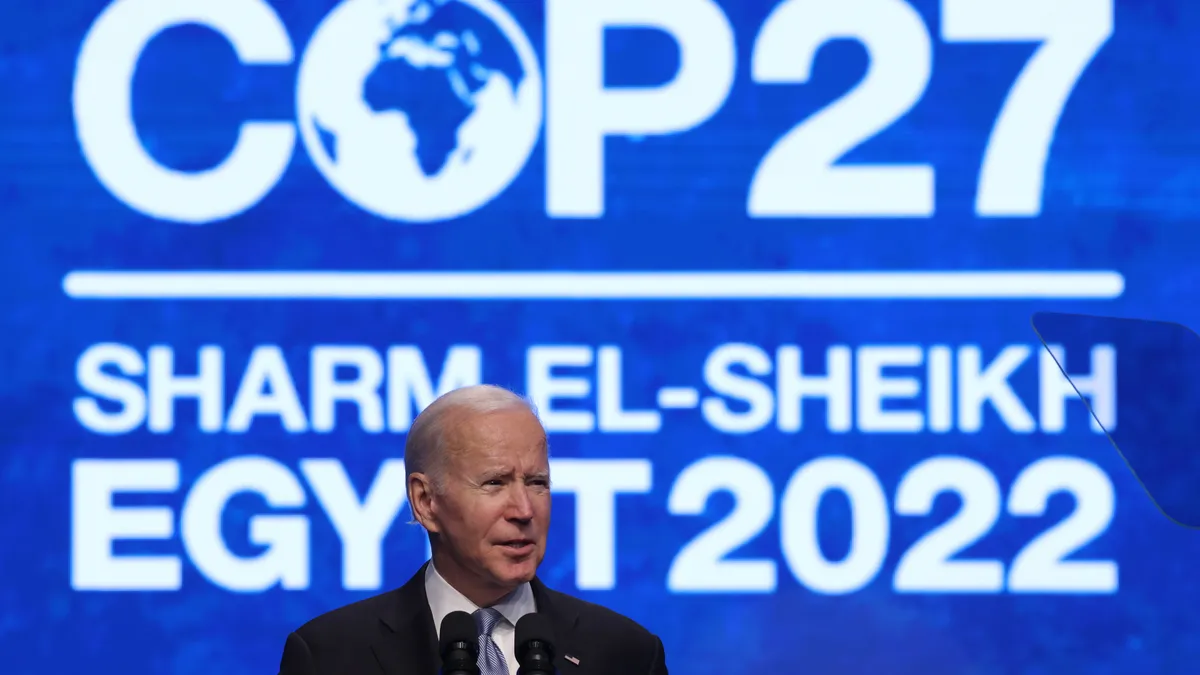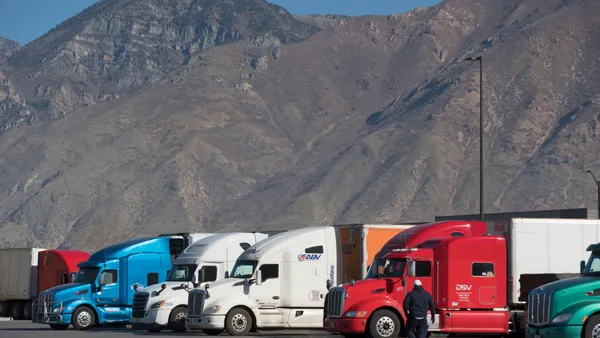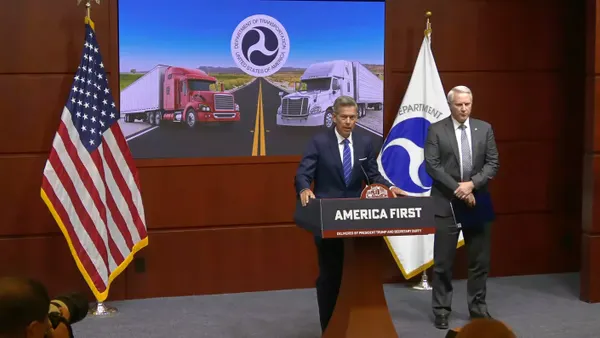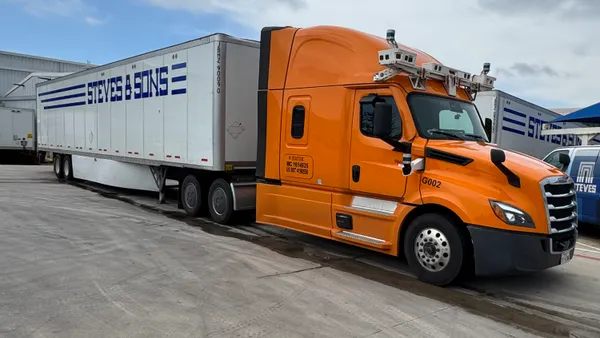The Biden administration has joined an international commitment to support the shift of all new medium- and heavy-duty vehicle sales to zero-emission vehicles by 2040, according to a news release.
The U.S. signed onto the non-binding memorandum of understanding at COP27 in Copenhagen, Denmark on Nov. 17. The agreement also includes an interim target of converting 30% of medium- and heavy-duty vehicle sales to zero emissions by 2030.
“We have to work together across oceans and borders to meet our clean energy goals,” Energy Secretary Jennifer Granholm said in a statement. “This global partnership will leverage the billions of dollars in clean transportation investments provided by President Biden’s agenda to drive technological innovation, lower vehicle costs, and reduce transportation emissions.”
The more than two dozen participating countries hope to increase zero-emission adoption by working together with those in the industry “to identify viable pathways and supportive implementation action for deployment,” according to the memorandum. Medium- and heavy-duty vehicles account for a major source of local air pollutants, it says, calling zero-emissions vehicles an “essential” solution.
The U.S. was one of several new entrants to the agreement, alongside Aruba, Belgium, Croatia, Curaçao, the Dominican Republic, Ireland, Liechtenstein, Lithuania, Sint Maarten and Ukraine. Sixteen countries had previously made the commitment: Austria, Canada, Chile, Denmark, Finland, Luxembourg, Netherlands, New Zealand, Norway, Portugal, Scotland, Switzerland, Turkey, United Kingdom, Uruguay and Wales.
DHL Express is among the corporate stakeholders to also join the pledge. The logistics company has long recognized the important role the industry plays in decarbonizing the transportation sector, Greg Hewitt, CEO DHL Express U.S., said in a statement.
“The Global MOU and the growing list of signatory countries and endorsing organizations signing on at COP27 is a significant and welcome development,” Hewitt said. “We look forward to working with these governments and peers as we deploy zero-emission vehicles and the necessary infrastructure to make them a reality.”
Operational and business benefits of zero-emission trucks include lower maintenance and fueling costs, improved handling, lower vibration for drivers and healthier air in communities where trucks drive, according to the announcement. Fleet owners and operators who transition to zero-emission vehicles can claim a $40,000 commercial vehicle credit as part of the Inflation Reduction Act.
Lawmakers had urged Biden to commit to reducing emissions from trucks and buses. Sen. Martin Heinrich, who led more than a dozen colleagues in a letter to the White House, noted in a statement that Congress made large investments in U.S. electric and zero-emissions vehicle manufacturing capacity as part of the infrastructure law and Inflation Reduction Act.
“By committing to this goal alongside many other nations, the United States is affirming that we are serious about meeting our responsibility on climate and protecting our children’s future,” Heinrich said.
The initiative is co-led by national nonprofit consortium Calstart, which includes more than 300 members representing fleets, manufacturers, infrastructure providers and government agencies. Calstart’s Drive to Zero campaign seeks greater adoption of zero-emission vehicles and infrastructure.












